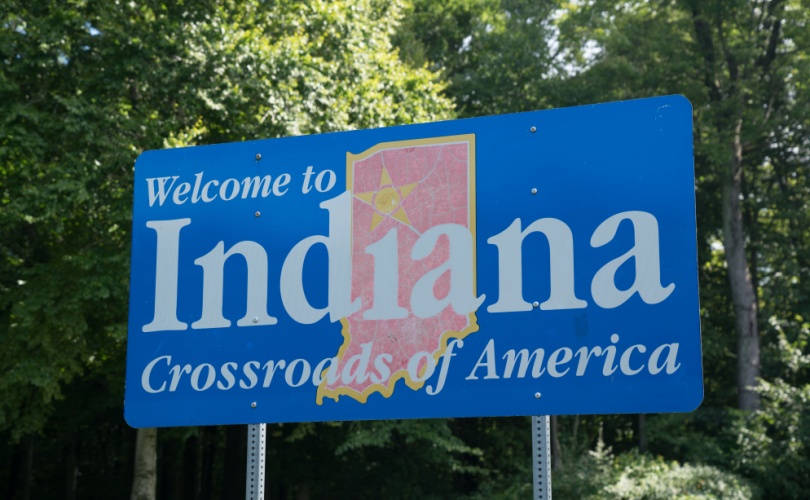
(LifeSiteNews) — There were 45 reported abortions in Indiana during the first three months of 2024, a 98 percent drop from the same time period the previous year.
This year will be the first full year a state law that bans nearly all abortions will be in effect. The left-wing ACLU is attempting to undermine the law by citing questionable religious liberty claims, however.
In total, 45 abortions were reported between January 1 and March 31, 2024, according to the Indiana Department of Health “Terminated Pregnancy Report.”
Babies can be aborted up to 10 weeks if conceived in rape or incest, as well as for “substantial and irreversible physical impairment” of the mother’s health, according to the legislation. The law also allows for the killing of preborn babies if they might “(suffer) from an irremediable medical condition that is incompatible with sustained life outside the womb up to 20 weeks.”
The “health” exception specifically excludes the broad “psychological or emotional” carveout. “A medical condition may not be determined to exist based on a claim or diagnosis that the woman will engage in conduct that she intends to result in her death or in physical harm.”
The law also bans abortion facilities, leaving only hospitals to kill unborn babies.
While the law includes exceptions, pro-lifers stress that a baby’s inherent human dignity and right to life does not come from the circumstances of his or her conception. Medical experts have also confirmed that direct abortion is never medically necessary.
Most of the abortions were on women 25 years and older, with roughly an even split between married and unmarried women. Thirty-four abortions occurred at 14 weeks or later, and 11 occurred before then.
Thirteen babies were killed using “intracardiac injections,” which means a “heart attack abortion.” This is when chemicals are injected into a baby to kill it by inducing cardiac arrest.
Women cited “lethal fetal anomaly” for 28 of the cases, “serious health risk/life of the pregnant woman,” 16 times, and rape/incest once.
Indiana Right to Life did not fully endorse the law based on the exemptions.
“(W)e acknowledge the path forward is either the potential to end the vast majority of abortions in Indiana, beginning with the closure of Indiana abortion clinics in mid-September, or allowing all abortions to continue under current law, as women from Ohio, Kentucky, and other states travel to Indiana for abortions,” the group said in 2022. “We urge every legislator to prayerfully consider how their vote will impact the path Indiana now chooses.”
As LifeSiteNews has previously noted, the decrease in reported abortions cannot fully capture other circumstances, such as women who traveled to nearby Illinois and Michigan for abortions. The reported abortions also don’t include self-induced, at-home abortions committed with abortion pills purchased online from out-of-state or out of the country.
Abortion drugs have become more widely available due to deregulation by the Biden administration, including allowing them to be shipped across the country, in contradiction to longstanding federal law.
However, the effect abortion drug availability has on undermining bans has been challenged by Professor Michael New, a well-respected social scientist at Catholic University of America.

